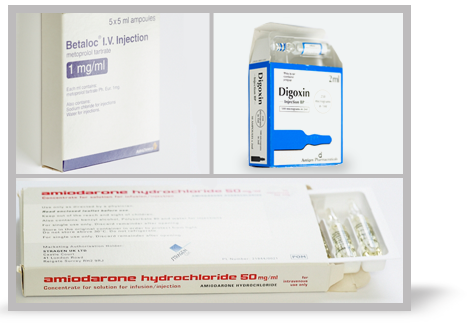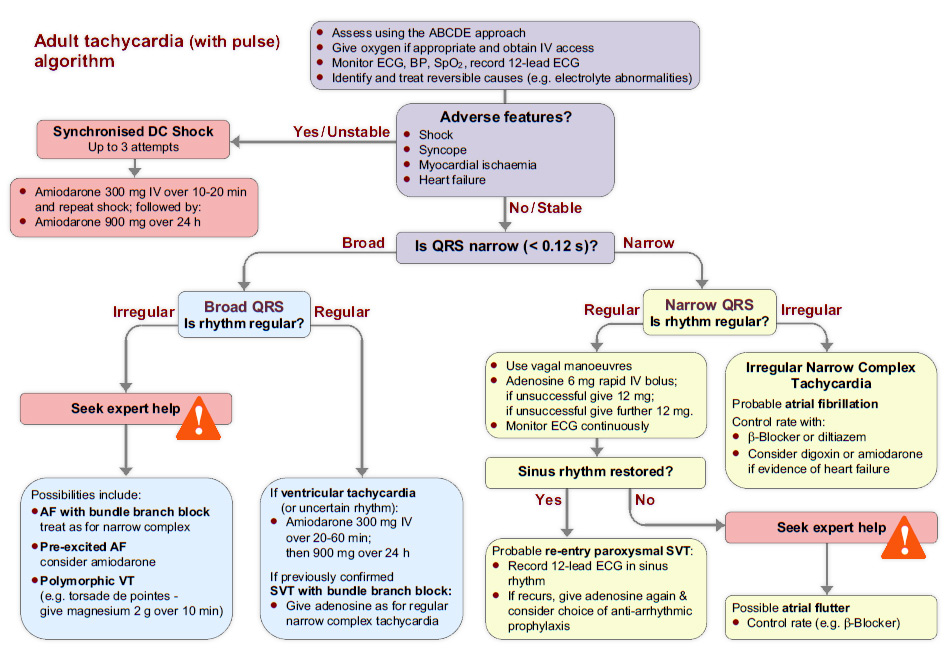
Drugs for rhythm and rate control
There are several different drugs that can be prescribed for rhythm control or for heart rate control or both.
Select each heading to find out more.
Select each heading to find out more.

Drugs for rate control
If the aim is to control a patient’s heart rate, the usual drug of choice is a ß-blocker.
- Diltiazem may be used in patients in whom beta blockade is contraindicated or not tolerated
- Digoxin may be used in patients with heart failure
- Amiodarone may be used to assist with rate control but is most useful in maintaining rhythm control
When possible you should always seek expert help in selecting the best choice of treatment for rate control in each individual patient.
Select Next to continue.Drugs for rhythm control
If the duration of atrial fibrillation is under 48 hours, and rhythm control is considered the appropriate strategy, chemical cardioversion may be appropriate.
- Drugs such as flecainide may be used but you should always seek expert help before prescribing it to a patient. Do not use flecainide in the presence of heart failure, known left ventricular impairment or ischaemic heart disease, or a prolonged QT interval
- Amiodarone (300 mg intravenously over 20 – 60 min followed by 900 mg over 24 h) may be used to attempt chemical cardioversion but is often less effective than drugs like flecainide and can take longer
- Electrical cardioversion remains an option in this setting and will restore sinus rhythm in more patients than chemical cardioversion
Settings
Font colour
default inverted high contrast high contrast inverted high contrast soft green on blackSample text
text looks like thisTEXT LOOKS LIKE THIS






